Covid: Indian variant cases in 86 council areas - Hancock
- Published
Matt Hancock says the Indian Covid variant is "tending not to penetrate into older, vaccinated groups"
There are now 86 local authorities with five or more confirmed cases of the Indian Covid variant, Health Secretary Matt Hancock has said.
"This isn't just about Bolton and Blackburn," he said, referring to the areas seeing a spike in cases.
It comes as millions of people can now enjoy new freedoms as lockdown is eased in England, Wales and most of Scotland.
But the government has warned its next review of social distancing rules may be delayed.
No 10 said the Indian variant "could pose a threat" to the process of deciding whether all remaining lockdown restrictions could be eased on 21 June.
Mr Hancock told the House of Commons there were now 2,323 confirmed cases of the Indian variant in the UK.
This means there has been a 77% increase in confirmed cases of the variant over the last five days.
"There are now 86 local authorities where there are five or more confirmed cases," he said. There are 343 local authorities in England.
Mr Hancock said the Indian variant was now the dominant strain of the virus in Bolton as well as Blackburn and Darwen and was rising in all age groups.
He said most people in hospital in those areas had been eligible for a vaccine but had chosen not to have it - and urged anyone not sure whether to get jabbed to "look at what's happening in Bolton".
Bedford was also fast becoming a hotspot for the variant, Mr Hancock said, and surge testing would begin there.
Holidaying Brits touch down in Portugal: "It feels unreal"
Scientists believe the Indian variant does spread more easily, but early data suggests vaccines still work. The exact impact on vaccine efficacy - if any - is yet to be confirmed.
People aged 37 and over in England will be able to get the vaccine from Tuesday, he said - and the rollout would continue to be expanded later in the week.

Lockdown eases across UK:

The lockdown changes on Monday - which are different in England, Wales and Scotland - have seen thousands of people heading off on foreign holidays, flocking to bingo halls and drinking inside pubs again.
People have also taken the chance to finally hug loved ones as the guidance on close contact were changed. Hospital ward manager Viv Hudson, 58, wept with joy as she finally hugged her daughter, Theresa Fox, for the first time in more than a year.
"It's a bit weird - but a good kind of weird. I've missed this so much," said Theresa, 38, who also works for the NHS.
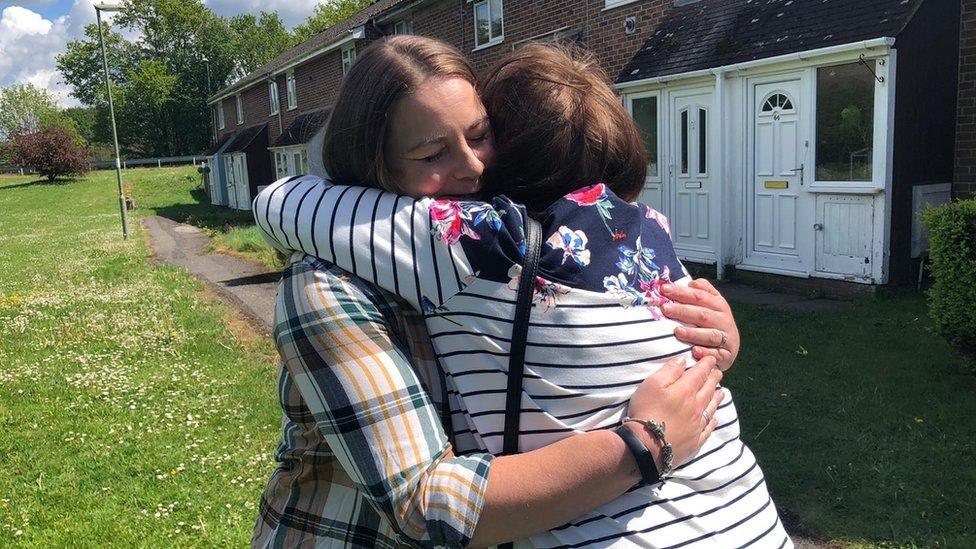
"It feels a bit naughty after all this time," says Theresa, 38, as she hugged her mum
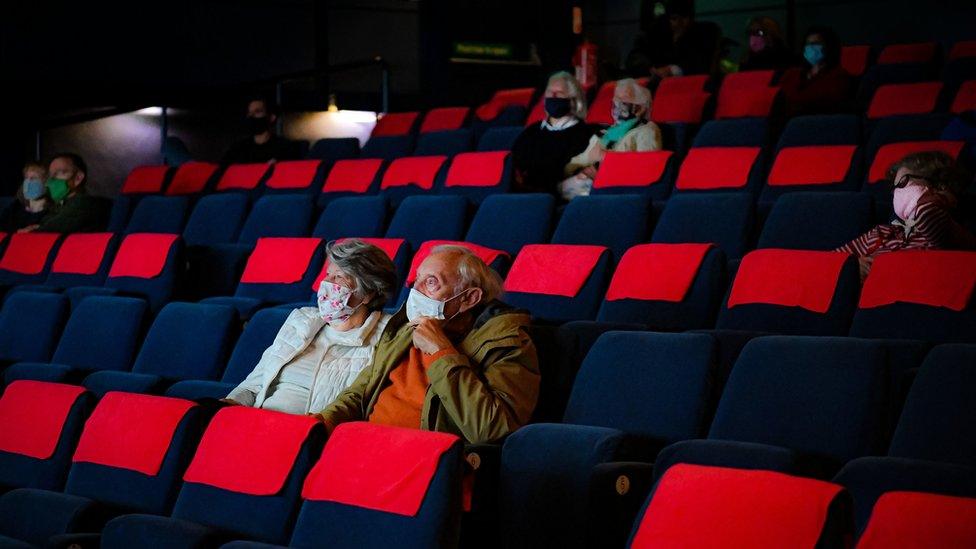
Cinema goers in Cardiff wear masks and are socially distanced as they watch the Oscar-winning Nomadland
"While we can take this step today, we must be humble in the face of this virus," said Mr Hancock.
He pointed out that fewer than 1,000 people were now in hospital with the virus - the first time this has happened since last September.
Latest figures, external show another 1,976 cases have been recorded across the UK and a further five people have died.
Meanwhile, the number of people who have received their first vaccine dose has topped 36.7 million, and more than 20.2 million second doses have been given.


Should we be celebrating the easing of restrictions or worried by the continued spread of a new variant?
The big picture is we are in a much better place than the start of the year - when around 1.25 million people were estimated to have the virus and the NHS was feeling the pressure.
Now there are fewer than 1,000 people in hospital with Covid - 97% lower than the peak.
However, we are in a transitional phase as the burden of suppressing the virus is shifting from lockdowns to the vaccine. That process is not yet complete.
It means there is still the potential for a more transmissible variant to cause a spike in cases and people needing hospital treatment.
There is still uncertainty about how transmissible B1617.2 is and in turn how great a threat it poses.
However, the planned easing in mid-June is already in significant doubt.

The government's plan was to end all remaining limits on social contact from 21 June - which would mean unlimited numbers of guests at weddings and nightclubs allowed to reopen.
Ahead of this happening, a review was set to happen by the end of May.
But earlier, the prime minister's official spokesman said: "The Indian variant could pose a threat to this process - our decision will be based on latest data. We will set out plans as soon as the data allows."
Asked whether ministers would consider a return to a tier system of rules, the spokesman said they did not want to talk about hypothetical situations but "we don't want to rule anything out".
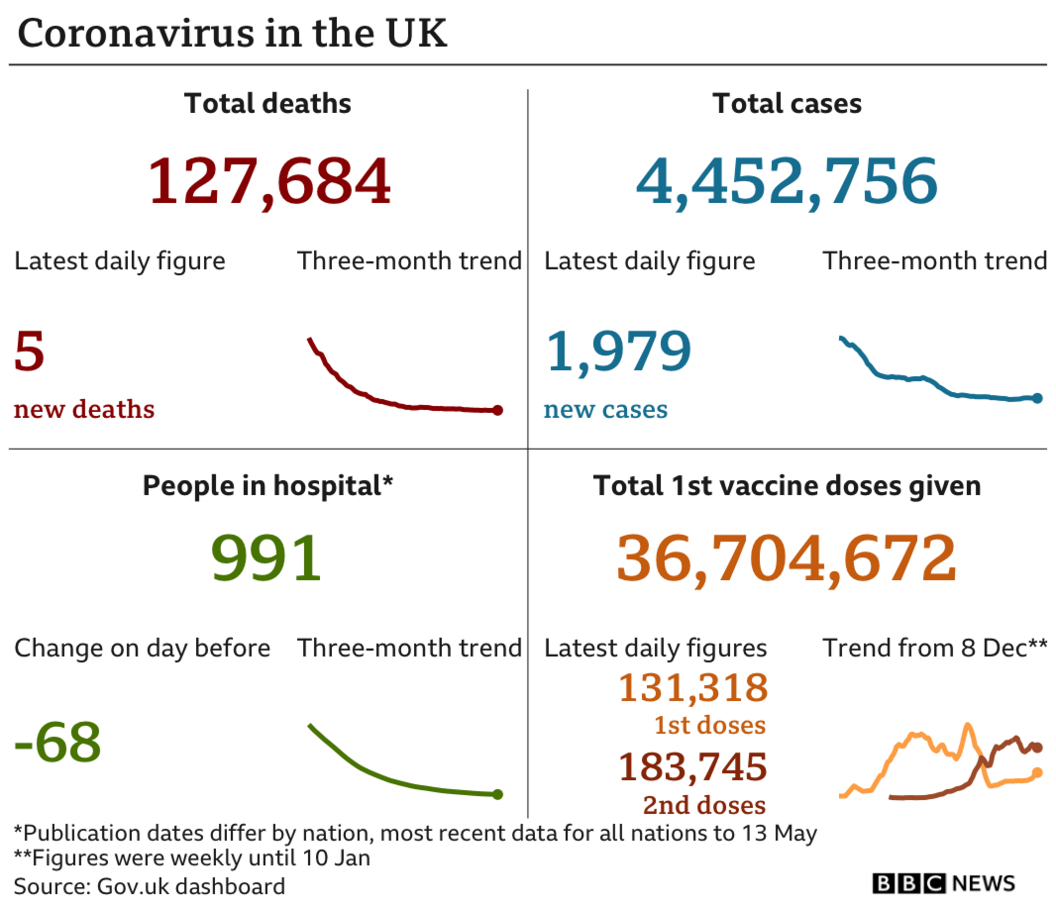

LOOK-UP TOOL: How many cases in your area?
YOUR QUESTIONS: We answer your queries
VACCINE: When will I get the jab?
NEW VARIANTS: How worried should we be?

Related topics
- Published17 May 2021

- Published17 May 2021
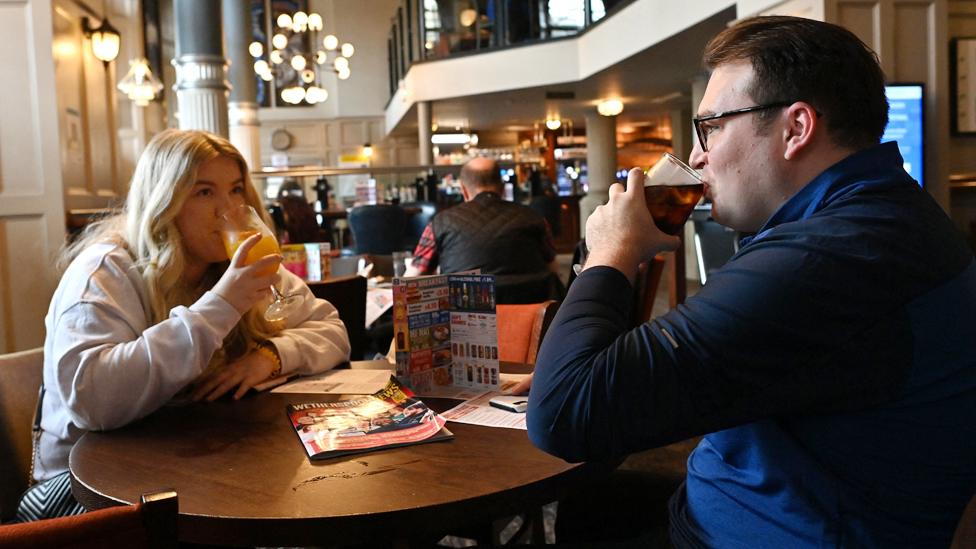
- Published1 July 2022

- Published17 May 2021

- Published11 February 2022

- Published15 May 2021
- Published19 May 2021
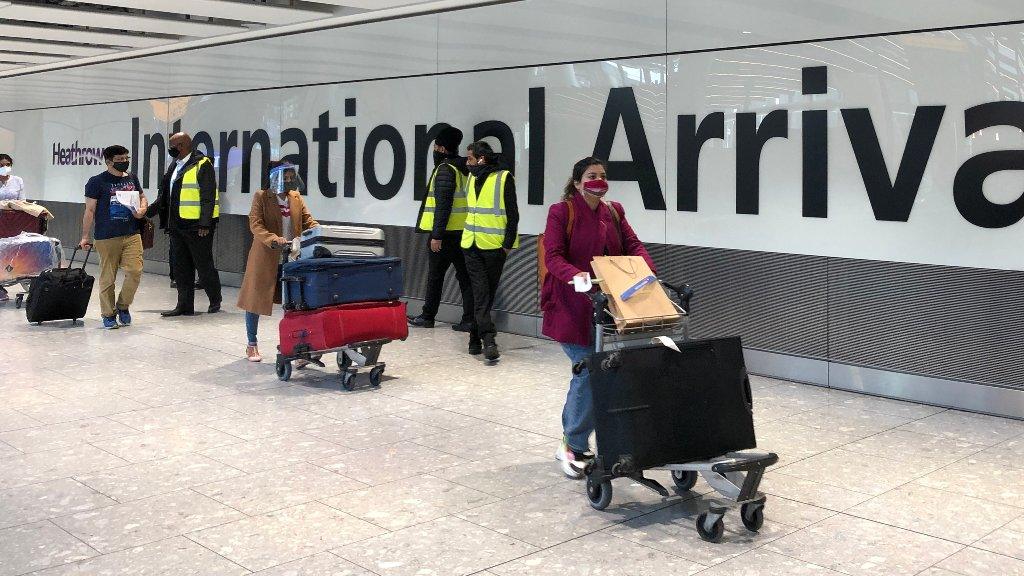
- Published1 July 2022
